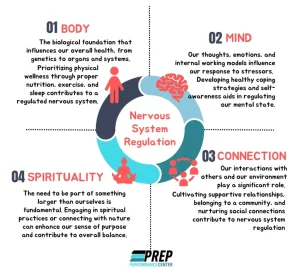
Stress releases various inflammatory cytokines that can help destroy pathogens and start healing processes; however, chronically elevated inflammation may have adverse health consequences and cause dysregulation of immune function.
Studies have demonstrated that chronic stress can disrupt several clinically meaningful immunological parameters, such as antibody responses to vaccines and immune cells’ ability to suppress latent viruses as well as wound healing processes.
1. Stress Causes Inflammation
Stress causes our endocrine system to release adrenaline and cortisol into the bloodstream, priming us for action against an imminent threat – an evolutionary adaptation that ensured human survival over millennia. These hormones allow our bodies to cope with immediate danger before returning back into a restful state afterwards.
Chronic stress can alter the natural equilibrium of the body and lead to high levels of inflammation, leading to cascading effects that increase risk for heart disease, diabetes and even cancer.
Pro-inflammatory cytokines, produced as a result of prolonged stress, are released at elevated levels that interfere with immune system responses to infections or injuries and slow wound recovery; studies have also demonstrated that people under stress experience poorer responses to infections, slower wound recovery time and reduced levels of immunity conferred by vaccinations.
2. Stress Causes Infections
The immune system is an intricate network of cells, proteins and organs designed to defend against infection and disease. Stressful circumstances or responses such as physiological and psychological responses to them (stressors) can wreak havoc with our immunity systems and lead to various immune-related conditions like peptic ulcers, inflammatory bowel diseases depression autoimmune disease or reduced immunity against influenza vaccine.
Short bursts of stress may actually boost immunity by helping prepare it to deal with injury or illness, while prolonged stress can weaken it over time. Cortisol becomes overactive over time as its secretions trigger pro-inflammatory and anti-inflammatory cytokine levels that eventually compromise immune function and compromise immunity altogether.
Stressful situations can alter the balance between type 1 and type 2 cytokine production, altering antibody responses to vaccines and activate latent viruses such as Epstein-Barr virus and Cytomegalovirus; leading to immune dysfunction which has been linked with increased mortality rates.
3. Stress Causes Chronic Illness
Chronic stress is at the core of many health issues. Long-term stress affects almost every system in the body, from cardiovascular and digestive to fatigue, weight gain, addictions and sleep disorders as well as autoimmune diseases like multiple sclerosis, rheumatoid arthritis, lupus psoriasis and thyroid disease.
After three minutes of real or perceived threat, the initial fight-or-flight response should dissipate and all organ systems return to normal; heart rate, blood pressure, breathing, digestion, cellular activity and immune function return. When prolonged, immune cell levels of pro-inflammatory cytokines increase which may hinder wound healing as well as reduce immunity against vaccinations or put you at greater risk of some diseases.
Chronic stress also decreases lymphocytes, the immune cells responsible for fighting viral infections, increasing your chances of getting cold. A lower lymphocyte count leaves your body more exposed to viruses and bacteria lurking latently within its systems that could turn into active infections later on.
4. Stress Causes Cancer
Stress triggers adrenaline and cortisol production, which helps focus both mind and body for action. While short-term stress responses such as this one have helped humanity survive millennia of threats, chronically high levels of cortisol may compromise immune function and increase cancer risks over time.
Research in animals has demonstrated that stress can accelerate tumor growth by altering immune function and gene expression. Cortisol is known to inhibit apoptosis – the removal of damaged cells which would otherwise stop cancer spreading – while stress may reactivate latent herpes viruses that had lain dormant and hasten its progression into HIV disease progression.
Stress is unavoidable in life, but we should strive to limit its effects as much as possible. One effective strategy to do so is by including meditation, yoga or walking into our daily routine – something which will reduce long-term strain on immune systems.







